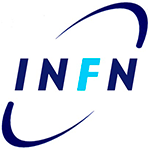Prof. Filippo Caruso
Noisy Quantum Diffusion: from transport phenomena to quantum generative AI
Transport problems are very popular in several fields of science, such as biology, chemistry, sociology, information science, physics, and even in everyday life. Our theoretical and experimental past efforts showed the remarkable and counter-intuitive role of noise in enhancing the transport efficiency in complex quantum networks, e.g. light-harvesting proteins and quantum communication networks. This behavior was also experimentally simulated by exploiting other physical systems such as telecom optical fibers, cold atoms in optical lattices and bio-engineered viruses. Inspired by our previous works, we have investigated new algorithms of quantum machine learning where noise plays a crucial and even beneficial role in optimizing their performances. They have allowed us to successfully address machine learning tasks as image classification, pattern recognition, and also data generation, e.g. via quantum generative adversarial networks. In this context, we have proposed and discussed the first quantum generalization of diffusion models such as the very popular GPT. In particular, we have suggested how to exploit quantum noise not as an issue to be detected and corrected but instead as a very remarkably beneficial key ingredient to generate much more complex probability distributions that would be difficult or even impossible to express classically, and from which a quantum processor might sample more efficiently than a classical one. Therefore, we believe that our results might have widespread real-world future applications ranging from climate forecasting to healthcare, from traffic flow analysis to financial forecasting.





